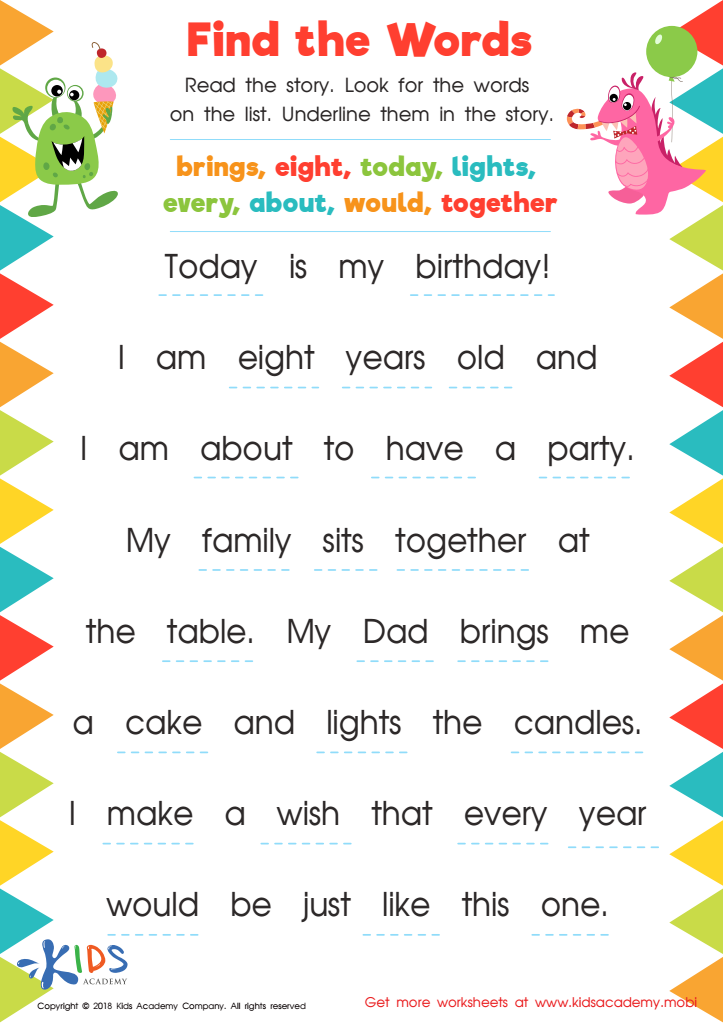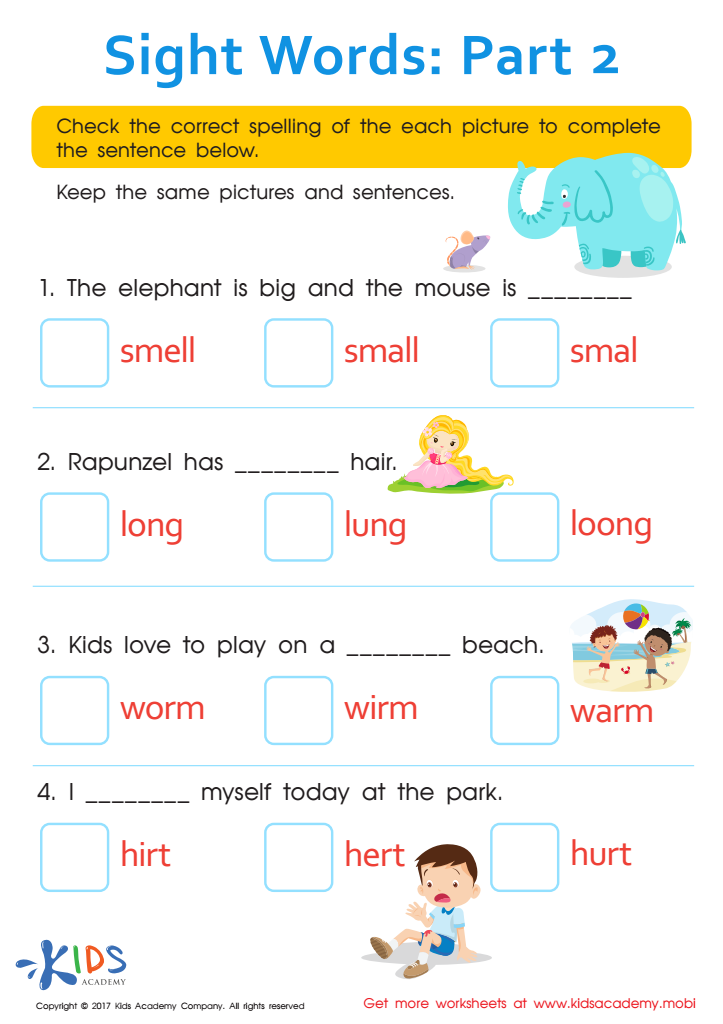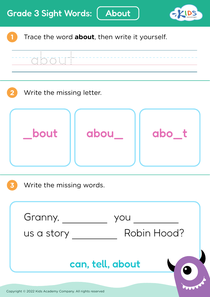RF.3.4.A Fluency worksheets With Answers for Grade 3
2 filtered results
-
From - To
Enhance your third grader's reading fluency with our RF.3.4.A Fluency Worksheets! Specifically designed for Grade 3, these printable worksheets will engage students while helping them develop essential skills in reading aloud with accuracy, pacing, and expression. Each worksheet focuses on activities that build confidence and comprehension in young readers. Complete with answer keys for easy assessment, these resources are perfect for classroom or home use. Explore our collection now and help your child thrive in their reading journey. Prepare your student for success as they gain the skills they need to excel in their educational achievements!


Find The Words Printable Worksheet


Sight Words Worksheet
RF.3.4.A focuses on reading fluency, a crucial element of literacy development for grade 3 students. Fluency refers to the ability to read text accurately, quickly, and with proper expression. When parents and teachers emphasize fluency, they recognize its significance in fostering comprehension and overall reading success.
Fluency is essential because it lays the foundation for better understanding of the material. When students can read smoothly, they can allocate more cognitive resources towards understanding the content rather than decoding each word. This not only enhances their ability to grasp complex ideas but also builds their confidence as readers.
Moreover, fluent readers are more inclined to enjoy reading, fostering a lifelong love for books and learning. Practicing fluency helps students become more proficient speakers and writers, as they gain familiarity with sentence structure, vocabulary, and punctuation.
Parents and teachers can support fluency development by providing ample opportunities for practice through reading aloud, engaging in repeated readings, and using fun activities like poetry or plays. When children experience success in reading fluently, they are likely to perform better academically and cultivate a positive attitude toward literacy. Therefore, investing time and resources into developing fluency is vital for a child's educational journey.
 Assign to My Students
Assign to My Students















